What Switzerland and Taiwan can learn from each other
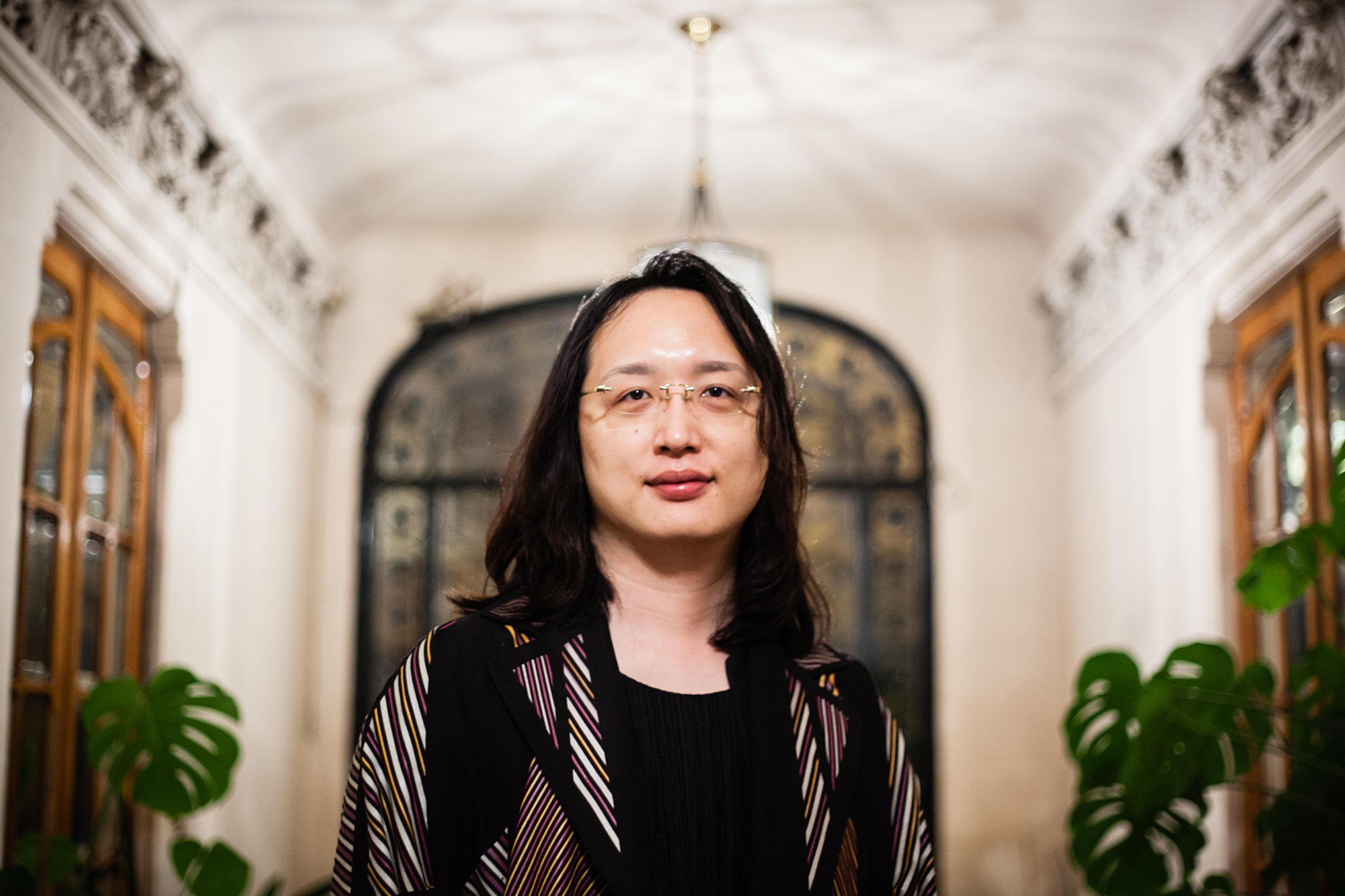
For many people Switzerland is the world champion when it comes to old-fashioned analogue direct democracy. But it is struggling with digitalisation.
The failure to introduce e-voting is one example. Taiwan, by contrast, is the world leader in digital, participative democracy. Our conversation with Taiwan’s minister for digitalisation, Audrey Tang, developed into an exchange of ideas between two leading democracies that has global educational value.
Tang embodies a completely new breed of politician. The 38-year-old minister for digitalisation is a member of the cabinet, but she is also a civic hacking activist, philosopher and international rock star of Democracy 2.0. She represents a new generation that is no longer naively chasing digital progress or rejecting it on ideological grounds but wants to define and control it.
“Instead of building virtual realities, we should develop a common reality together,” she says. “Instead of concentrating on machine learning, we should be concentrating on collaborative learning.”
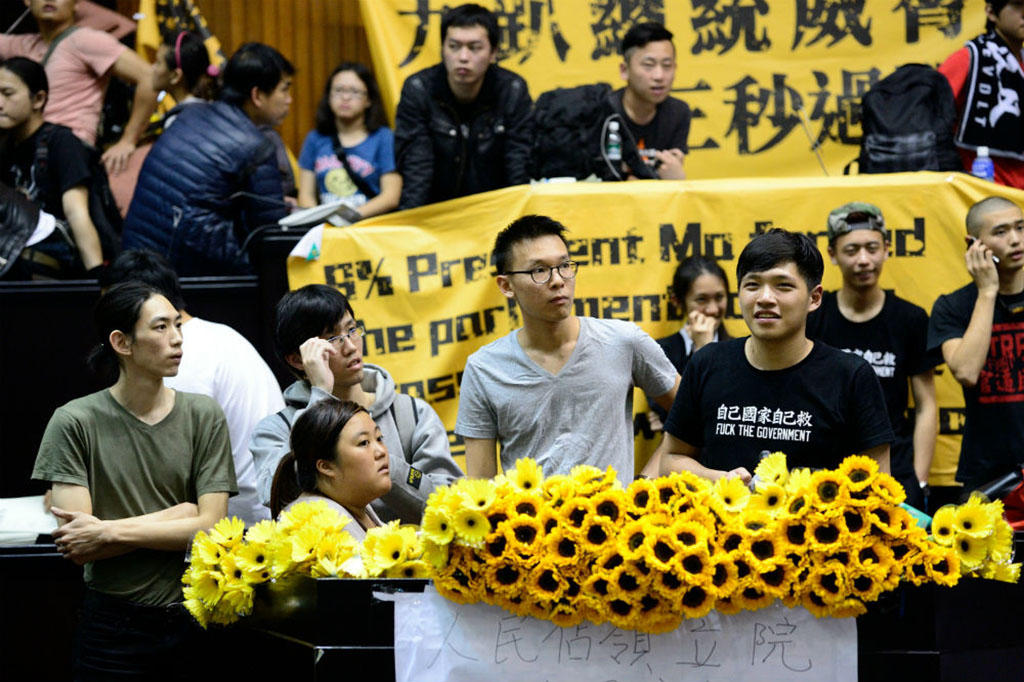
More
How Taiwan became a lab for digital democracy
“We shouldn’t be asking about user experience, but about human experience,” is her basic tenet. What may sound naive and idealistic to some is a hard reality when living at a geopolitical flashpoint.
Tang is a cabinet member in a state recognised as such by a dwindling number of countries. For its part, Switzerland does not recognise Taiwan as an independent state, but as part of China. A debate is raging in Taiwan at the moment about the level of its allegiance to China – which sees the island as a renegade province – and about protecting democracy.
The pressure for social and democratic innovation is therefore much higher in Taiwan than in Switzerland’s old democracy. swissinfo.ch recently met Tang in her office at the seat of government in Taiwan’s capital Taipei to compare the two systems. This discussion about the future of democracy threw up questions that are of global relevance: How do we secure digital platforms? Who has a say? How can citizens be brought digitally up to speed?
Governing together
The goal is not to replicate hierarchies and power structures in the developing digital world, but to actively shape them. Tang no longer talks about e-democracy, but about “CoGov”, collaborative governance. CoGov is the idea of governing together as “a public service of collaboration”. Everyone — from the minister to a teenager who does not yet have the right to vote – is equal, and everyone has the right to have a say.
The core message here is that instead of “smart cities” we need “smart citizens”. The digital platforms “vTaiwan” and “Join”, the latter for administrative proposals, are the places for initiating general discussion on topics in Taiwan.
A quick comparison with Switzerland: Basel City is the first canton to explore introducing a digital platform for collecting signatures for people’s initiatives and referendums.
Since it went live three years ago, Join alone has notched up more than ten million users. “If half of Taiwan’s population is using a participative platform, we no longer need to speak of e-participation, because this is now about CoGov,” Tang says.
In October, more than 100 petitions and more than 100 regulatory announcements were in process on Join. In addition, 2,000 government projects were up for debate. Most of the issues involved related to healthcare, health facilities and social housing.
Authorities approach citizens
Every ministry has a team of “participation officials”. Their task is to take the pulse at monthly meetings with citizens in order to be able to identify problems early on. Citizens play an active role in setting the agenda from the beginning.
For example, in September 2019 there was a question about banning the force-feeding of pigs for a traditional competition which awards the prize to the heaviest pig. The animals become so fat they can barely move. Another subject was a demand for a professional response to sexual harassment in schools.
Every other week, Tang travels through the regions of the island. She ensures on site that citizens can discuss their concerns and problems directly via a high-speed video connection to people responsible in the ministries in Taipei. Tang also has an open door for citizens every Wednesday; they can discuss their concerns and problems with her face-to-face from 10am to 10pm.
This is how it works: open cooperation allows all those involved to find common ground for cooperation. So participants become partners with common goals. The process is what matters, Tang says – or as she puts it, “the design for standard-setting procedures”.
This is a process with four steps. Tang explains it with the example of an e-petition to introduce a gradual ban on plastic cutlery, and particularly on drinking straws in restaurants. Someone with the pseudonym “I love elephant and elephant loves me” launched this petition, which reached the necessary 5,000 signatures in no time.
To the surprise of everyone, the initiator with the elephant pseudonym was a 16-year-old schoolgirl. She sat at a table with all the stakeholders and talked to representatives of political parties, the administration and companies. The goal was to reach a consensus on implementing a standard. The companies agreed to make drinking straws out of renewable resources. They are made of paper and organic waste such as sugar cane.
Laws are superfluous
Now, a year and a half later, plastic drinking straws have largely disappeared from restaurants, at least in Taipei. Even take-aways have started to hand out drinking straws made of cardboard or sugar cane. So a law is no longer necessary – it’s usually enough for stakeholders to create a generally recognised consensus or code of conduct.
By comparison, Swiss citizens often act solely as a corrective to political initiatives. In Tang’s opinion, if lawmakers try to pass laws that dictate a code of conduct, it can often trigger a storm because the debate leads to polarisation. And “in a liberal democracy, any rush towards a top-down approach poses the biggest risk”.
Taiwan, however, needs to catch up quickly itself in some areas. The first votes on people’s initiatives, in 2018, were seen by many as a failure. For one, public debate was limited to 28 days. Another problem was that the referendum date coincided with regional elections. That was very confusing, because some of the initiatives were put forward by election candidates, Tang says. “We need to learn from Switzerland on this.”
Tang is aware of the dangers of digital democracy. She thinks it would be premature to relocate decisions to the digital world. “We won’t have electronic voting for candidates for mayoral or presidential posts. End of story. We won’t do that,” she says. The risks of abuse are still too high, she says.
Tang left school at 15 to found several start-ups as a programmer. Her experiences from that time as part of the internet community, combined with the idea of an internet government consisting of numerous stakeholders, have influenced her to this day.
The Tiananmen Square massacre in 1989 in Beijing also played a role.
In 2013, Tang became a member of Gov Zero (gOv), which today remains a central movement of civic hackers in Taiwan. According to Tang’s definition, they are “politically oriented programmers with the ethos of activists”.
Three years ago, Tang was called to the cabinet by Taiwan’s president, Tsai Ing-wen. She was the first digital minister and the first transgender member of the government. Before that, Tang served as a youth mentor to Tsai for three years.
Translated from German by Catherine Hickley

In compliance with the JTI standards
More: SWI swissinfo.ch certified by the Journalism Trust Initiative
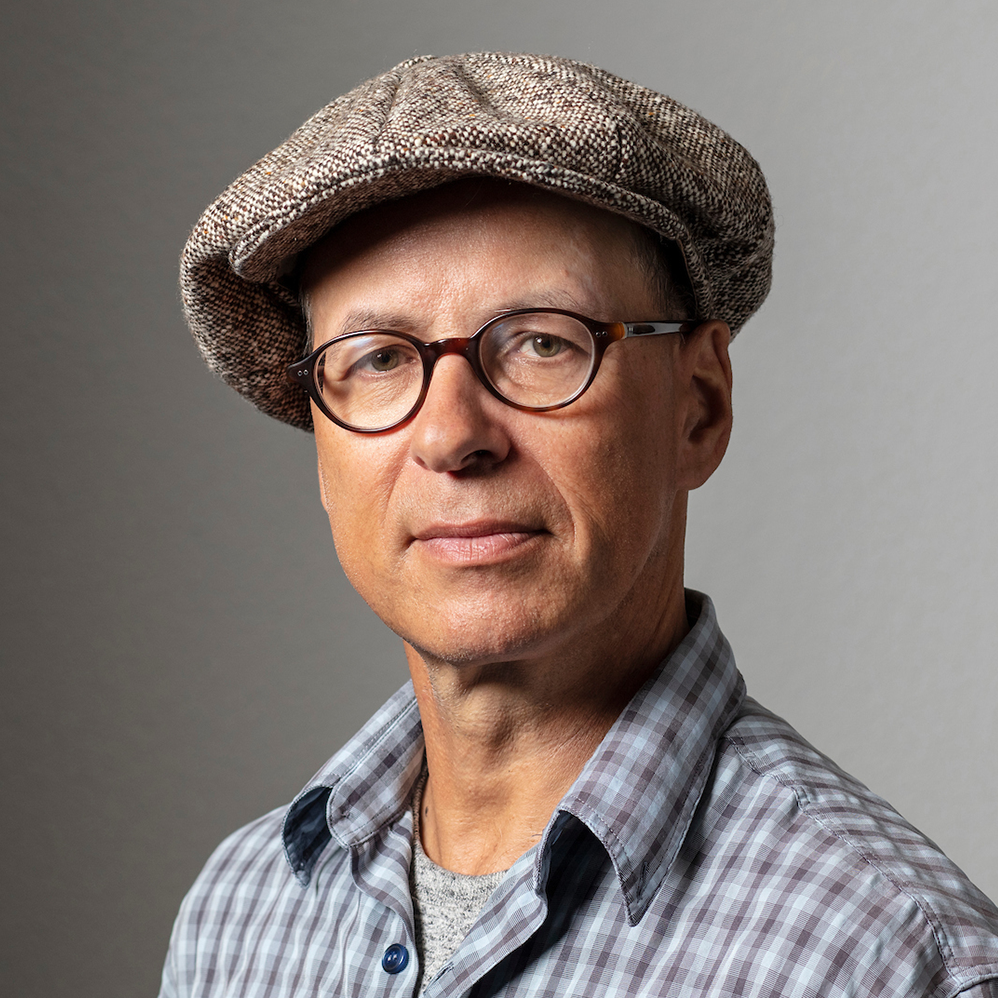
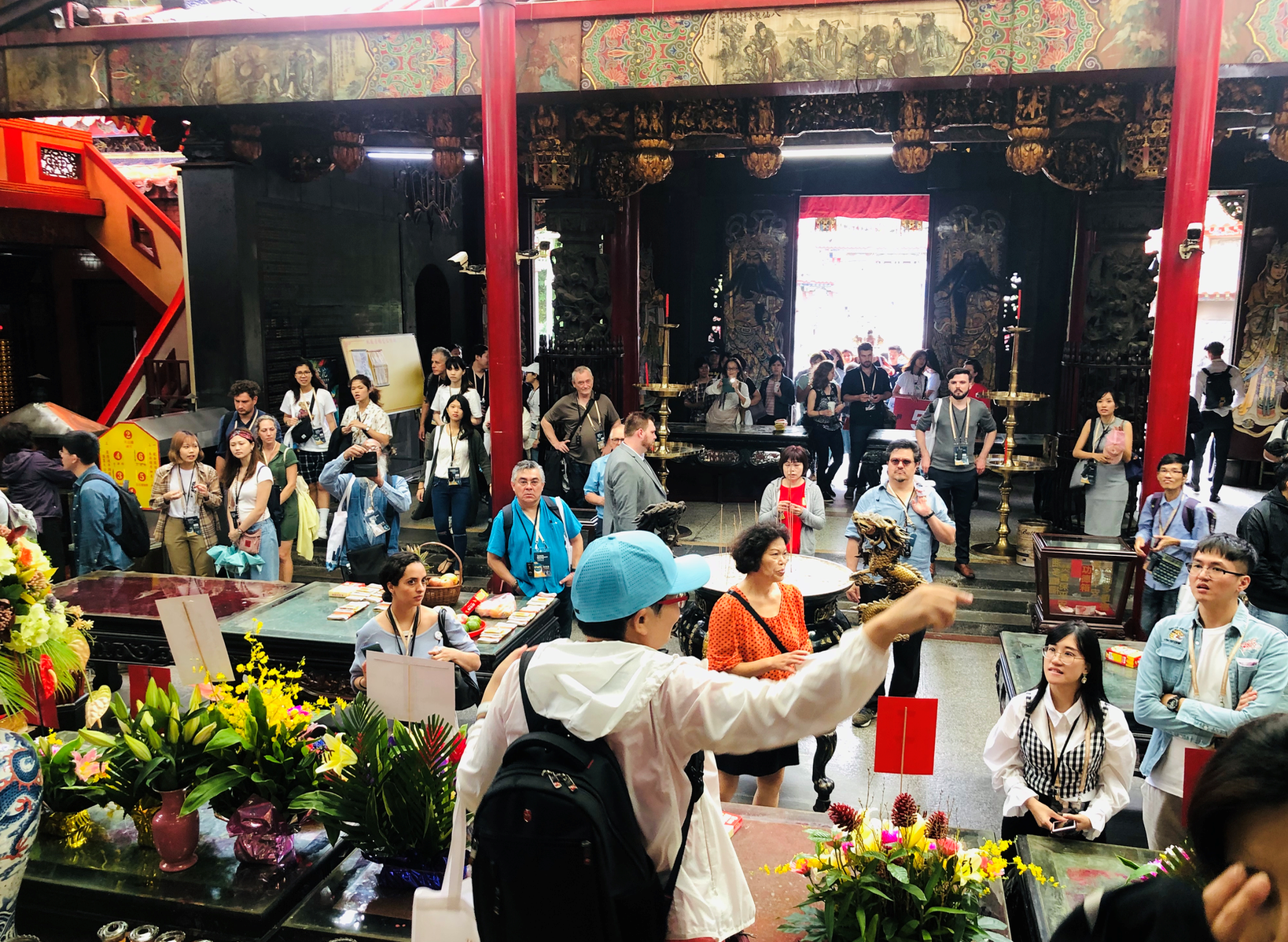



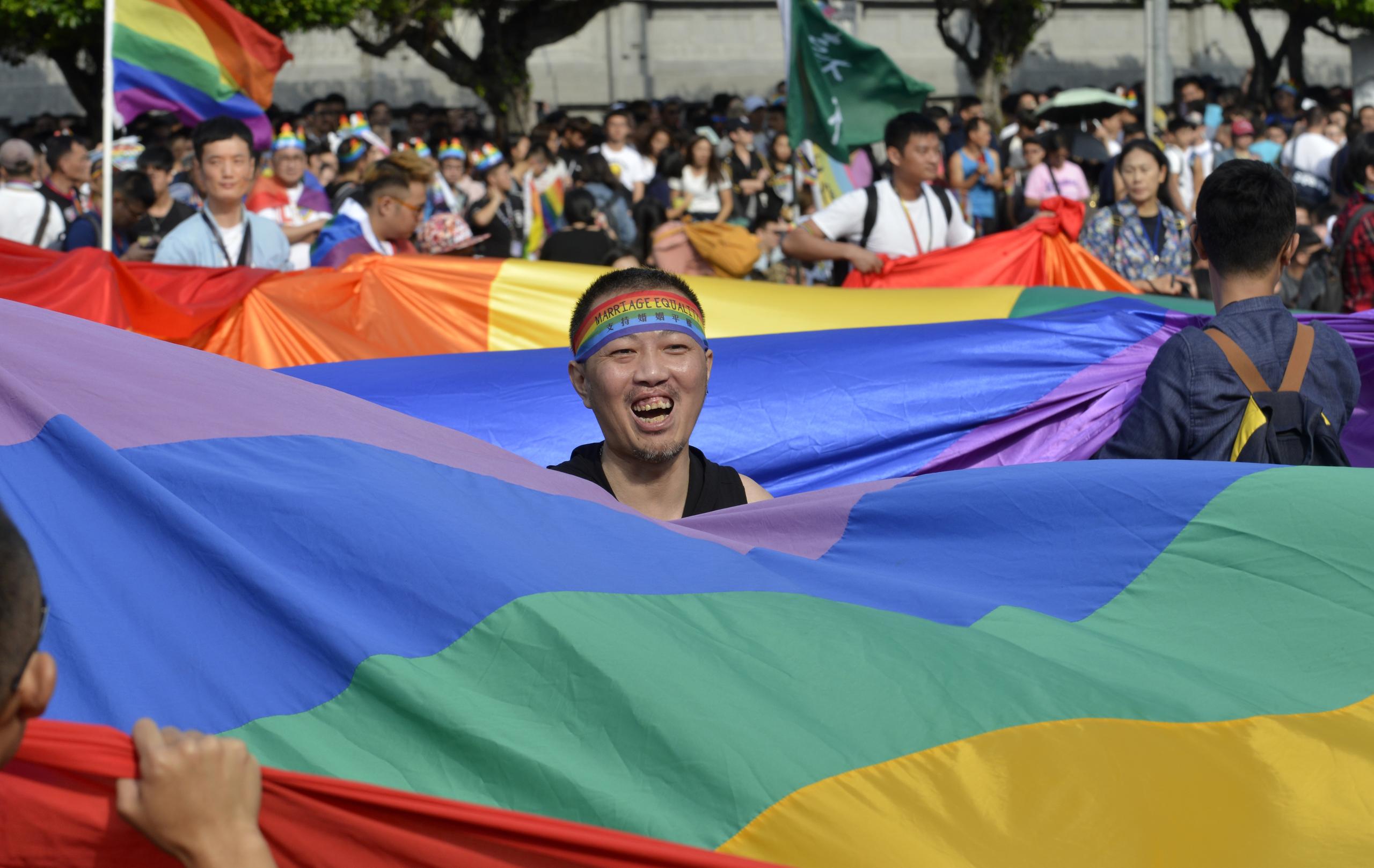
You can find an overview of ongoing debates with our journalists here. Please join us!
If you want to start a conversation about a topic raised in this article or want to report factual errors, email us at english@swissinfo.ch.